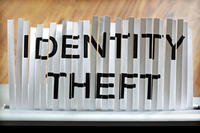Louise used to think her credit card was her friend. Having a credit card kept Louise from walking around with wads of cash in her pocket. It also helped her out when she was short on money between pay periods. Louise would charge necessary expenses to her credit card and then pay her bill in full when she got her paycheck. This worked just fine -- until Louise caved into her children's ever-growing holiday list, putting a pile of presents (that she knew she couldn't afford) on her credit cards. Louise figured she would just make the minimum required monthly payment until she could catch her breath. What Louise didn't realize was that this maneuver effectively doubled the price she paid for those gifts.
When you make the switch from using credit cards for convenience (and paying off your balance in full each month) to using credit cards as a way to borrow money (which is what happens when you pay less than your full balance outstanding) -- credit cards turn from friend to foe. Why? Because the credit card companies charge you a princely sum to borrow that money.
Here's how it works: The money you send to the credit card company each month first goes to paying interest charges, and then what's left over go towards reducing your debt. In other words, not all of your monthly payment goes to paying off the money you borrowed. If you have a "typical" card with an 18 percent interest rate and a 3 percent minimum payment, almost half of your monthly payment goes to interest. Trying to pay off credit card debt by making just your minimum monthly payment is a lot like trying to fill up a mug of coffee that has a hole in the bottom. It takes a heck of a lot of effort because not all of what you put in the cup stays there. With credit cards that "leak" is the interest you pay on the money you have borrowed.
If your credit cards have turned from friend to foe, please don't despair. You are not alone. More than 60 percent of American households who use credit cards pay less than their full balance outstanding each month. And we're not talking chump change here. Among households with at least one credit card, the average outstanding balance is a whopping $9,000 plus. So if you have a pile of credit card debt, don't beat yourself up. Instead, commit in 2007 to bringing your debt level down.
Start by only charging items to your credit cards that you can pay off in full each month. We know money can be tight, but please think about any future credit card debt as a last resort option for a real, dire emergency. As for any existing debt, give yourself the gift of increased financial security by increasing the amount you pay each month. Your goal is to send extra money to the card that is charging you the highest interest rate. Here's how much we recommend adding to your monthly payment:
- For total credit card debt of $5,000 or less, add an extra $50 every month.
- For total credit card debt of $5,001 to $10,000, add an extra $100 every month.
- For total credit card debt of $10,001 or more, add an extra $150 every month.
By paying more each month, you will dramatically reduce both the time it takes to pay off your debt and the amount you pay the credit card companies in interest.
Congratulations! You now know what turns a credit card from friend to foe. This is powerful information. By committing to only use your credit cards in a prudent manner, you will take a very important step forward on the journey to having or maintaining financial security.
Note: If you need some additional help in paying down your credit card debt, two books we highly recommend are Jean Chatzky's Pay it Down and Dave Ramsey's The Total Money Makeover.










